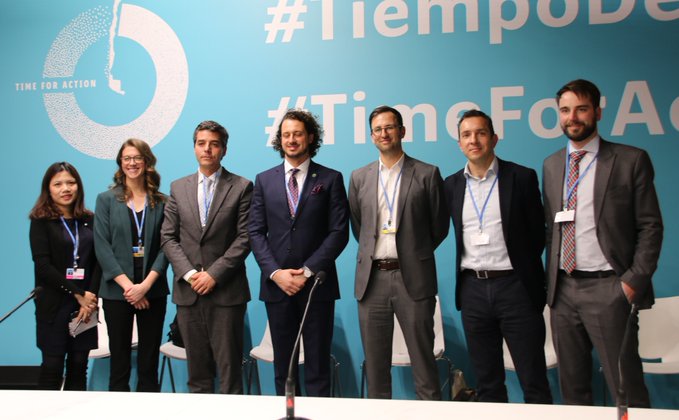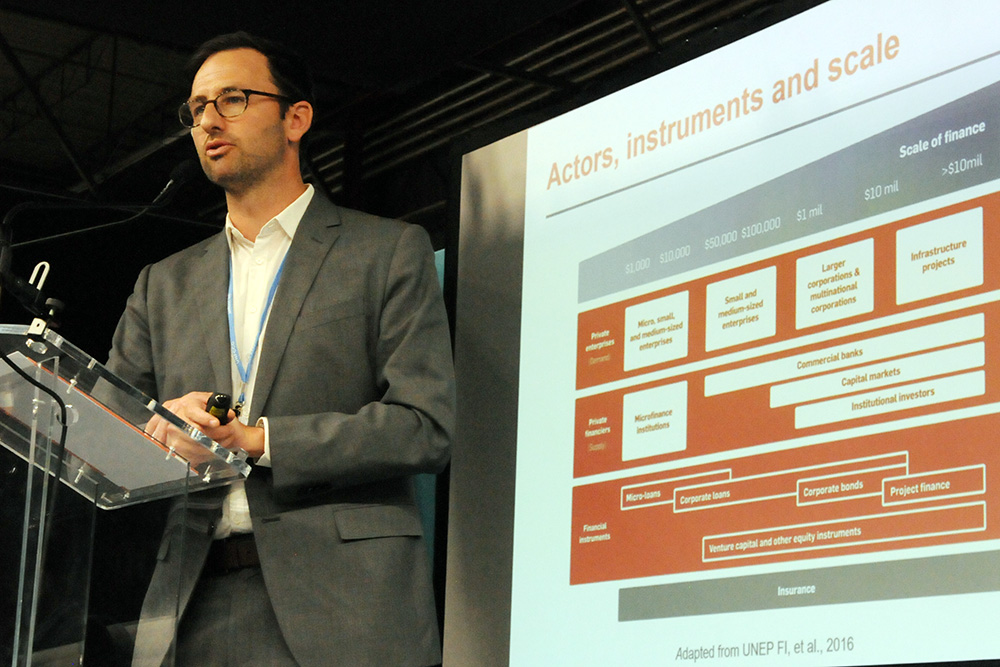
This event provided an update on the Adaptation Committee’s work and discussed advances in private sector engagement. The event also presented and gathered feedback on a toolkit under preparation, which will enable policymakers to more effectively engage the private sector, especially in the process of formulating and implementing national adaptation plans (NAPs).
Emerson Resende, Green Climate Fund (GCF), moderated this event. Bertrand Piccard, Solar Impulse Foundation, reported that his foundation is selecting 1000 solutions that protect the environment in a profitable way, and noted that over 300 solutions have been identified and will be awarded the Solar Impulse Efficient Solution Label.
Frédéric Schafferer, UNFCCC Adaptation Committee, discussed the Committee’s milestones in private sector engagement, citing knowledge collection, a workshop on fostering engagement of agri-food sector in climate change adaptation, and the Adaptation Forum during the Republic of Korea’s Global Adaptation Week.
Alec Crawford, NAP Global Network, said the toolkit for private sector engagement, inter alia: lays the groundwork and provides enabling conditions for involvement; assesses vulnerabilities, provides options, and communicates NAP processes to the private sector; provides the enabling conditions to address private sector needs; and addresses monitoring and evaluation requirements.
Meghan Doherty, Winrock International, spoke on the Private Investment for Enhanced Resilience (PIER) project, noting work in Viet Nam to help private sector adaptation engagement. She reported that accessing climate data remains a challenge to developing adaptation and resilience policies.
Trần Thị Thanh Nga, Viet Nam, noted that the private sector faces barriers to adaptation, including the difficulty in quantifying adaptation activities, and pointed to a dearth of data and information to drive adaptation.

Santiago Aparicio, Colombia, pointed to the country’s information system developed through GCF financing and highlighted Colombia’s communication strategy on adaptation geared toward various stakeholders, including the private sector.
Chris Brown, Olam International, underlined the need for urgency within governments to create an enabling environment for the private sector to respond to both climate change and the market.
This session was followed by an interactive panel discussion. On improving engagement with the private sector, Crawford stressed the importance of communicating the profitability of adaptation to businesses. Brown said supporting private sector resilience enables improved business functions and profitability.
On who pays for adaptation, Doherty cited Peru’s tax incentives for businesses that support community projects, as an example. Nga said that while the government has been the main adaptation funder, private sector funds have increased.
Discussing providing opportunities for the private sector, Aparicio, drew attention to existing policies that identify risks and provide opportunities for innovative adaptation, citing the Green Growth Public Policy.
Crawford said private sector adaptation decisions can lead to increased profitability, while increasing resilience among communities.
To learn more about the Toolkit for Engaging the Private Sector in NAPs, check out Alec Crawford’s presentation.
View this original post, including photos, on the IISD Reporting Services website.